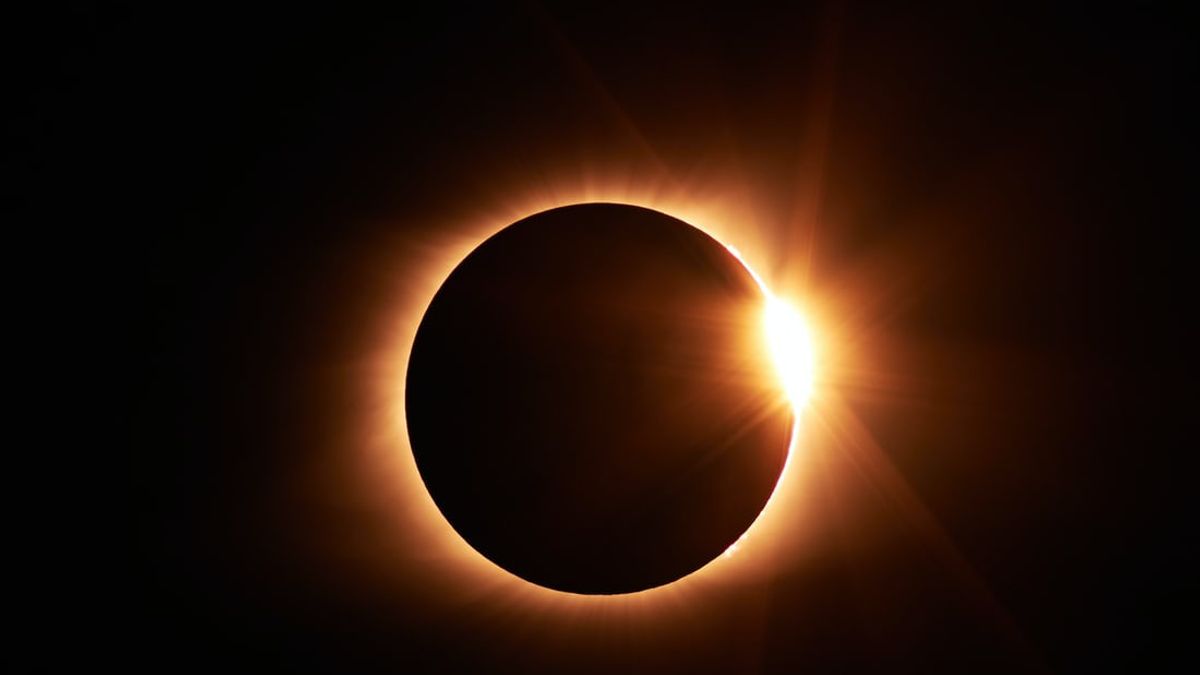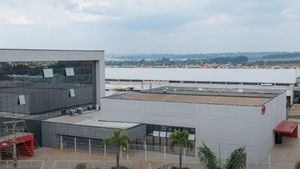JAKARTA - The phenomenon of a solar eclipse will return to Indonesia, on Sunday, June 21. Although in some parts of the world this phenomenon will be observed as a Ring Solar Eclipse (GMC), for the Indonesian region this view will only be partially observed.
"Ring Solar Eclipse (GMC) June 21, 2020, which can be observed in Indonesia in the form of a partial solar eclipse," said the BMKG in its official statement, Friday, June 19.
The Meteorology, Climatology and Geophysics Agency (BMKG) and the Aeronautics and Space Agency (LAPAN) explained that this phenomenon occurs when the Sun, Moon and Earth are exactly in line. At that time the disc of the Moon observed from Earth will appear smaller than the disc of the Sun.
This configuration is what causes a solar eclipse to look like a ring. Where the dark part of the Moon is in the middle, while the part of the sun that is not covered will be a ring of light around the shadow of the Moon.
This Ring Solar Eclipse will cross several regions of the world such as West Africa, Middle East, South Asia and the Pacific Ocean. In addition, areas such as parts of North and East Africa, Asia, the Indian Ocean, parts of Europe, North Australia and the Pacific Ocean can observe a partial solar eclipse.
"Meanwhile, in the area affected by the penumbra, the eclipse that was observed was in the form of a partial solar eclipse. Considering that Indonesia is located in the south of the ring path, the sun which is covered by the lunar disc at the peak of the eclipse is the right side," explained BMKG.
Based on BMKG's observations regarding this phenomenon, 432 cities and districts in 31 provinces will be able to observe GMC in the form of a Partial Solar Eclipse, with a magnitude ranging from 0,000 in Kepanjen, East Java to 0.522 in Melonguane, North Sulawesi.
"As for the other 83 city centers, namely two cities in Bengkulu, seven cities in Lampung, ten cities in Central Java, and seven cities in East Java, as well as all cities in West Java (except Indramayu), Banten, DKI Jakarta, and DI Yogyakarta are not the eclipse will pass, because the magnitude value is less than 0, "explained BMKG.
According to information shared by BMKG, this natural event will first visit the Sabang area at 13:16 WIB for 2 hours 27 minutes. Meanwhile, the city with the most recent start time is Kepanjen, East Java, which is 15.19 WIB for only 3 minutes.
The earliest peak of the eclipse will occur in Sabang, Aceh at 14:34 WIT, and the city experiencing the last peak time is Agats, Papua at 17.37 WIT.
Meanwhile, the earliest final contact will take place in Tais, Bengkulu at 15.06 WITA, and the last last contact will occur in Melonguane, North Sulawesi at 17.31 WITA.
The English, Chinese, Japanese, Arabic, and French versions are automatically generated by the AI. So there may still be inaccuracies in translating, please always see Indonesian as our main language. (system supported by DigitalSiber.id)













